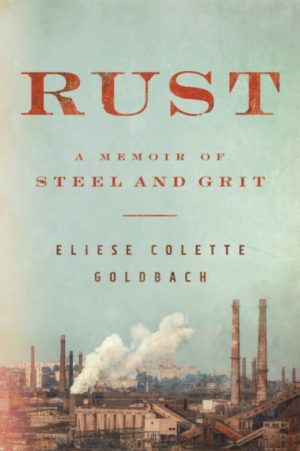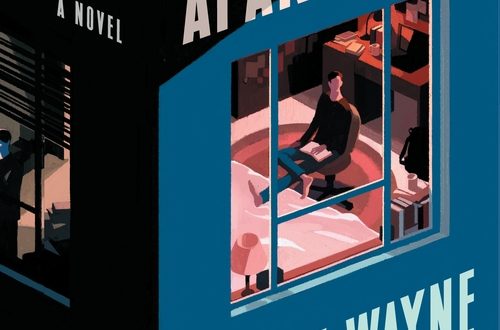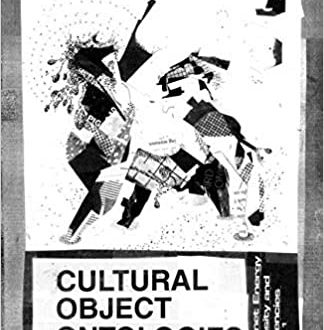
“Rust: A Memoir of Steel and Grit by Eliese Colette Goldbach” Reviewed by LaVonne Roberts
Forged In Steel, A Nation Divided
In Rust: A Memoir of Steel and Grit, Eliese Colette Goldbach reflects on her childhood as the second daughter in a Polish Catholic family and her three years as a steelworker. As a little girl in Cleveland, she could often see the rust-colored buildings of the city’s steel plant in the distance when she rode through town with her father. Eliese never imagined her identity would become Utility Worker number 6691, or that Trump would become President.
“I wasn’t supposed to be a steelworker. I wasn’t supposed to spend my nights looking up at the bright lights on the blast furnace, which glimmered in the starless sky. I attended an all-girls Catholic high school. I ran track. I played Beth in a school rendition of Little Women, and I was valedictorian of my graduating class.”
Eliese’s conservative childhood was mine, and even if it’s not yours, it’s a lesson as to why large parts of the United States vote Republican and a suggestion on how we might approach narrowing a widening chasm of philosophical differences.
“We were Republicans because God wanted us to be Republicans. Satan had corrupted the Democrats by tricking them into the sins of abortion, homosexuality, and, worst of all, feminism.”
Other critics have compared Eliese Colette Goldbach’s Rust to J. D. Vance’s Hillbilly Elegy and Tara Westover’s Educated. It also shares similarities with Darnell Moore’s No Ashes in the Fire because it’s an insider’s story. There are elements of all three, but Eliese Colette Goldbach’s voice and story are uniquely hers. Rust tells a story so personal and experiential that it reminds us that only those on the inside can criticize, empathize and inevitably distill and postulate about what life’s really like in Cleveland: a city nicknamed “the Mistake on the Lake.”
Eliese completed her MFA but never received her diploma when she failed to fill out a form. This small act is symbolic of a series of fragmented failures. She’s crippled by student debt, in a dysfunctional relationship, and spends her days painting houses. Buried in her malaise is a traumatic event that her college swept under the rug and minimized.
When painting a former college classmate’s house, Eliese learns her friend is working at the mill. She tells him she’s not cut out to be a steelworker until he shows her his paycheck. We learn that “hundreds, sometimes thousands, of people vie for a few open spots.
Like Eliese, “they want the American dream, or what’s left of it.”
Even though the “air still stank of rotten eggs,” Eliese explains that “sulfur was the smell of shifting fortune.” When Eliese takes the reader inside the mill, she’s not just providing access to the inner-workings of a blue-collar worker’s life. The author is reflecting back on what brought her there in the first place.
Eliese Colette Goldbach has a gift for writing visually arresting scenes. Reading that the dust settles on everything—on walls and fingers, on forklifts and lunches, we imagine the air she breathes and fear for what must have taken residence in her lungs. We weather the six-month trial period where orange hats must prove themselves worthy of a yellow hat and admittance into a life of security as a union worker.
Eliese outlines the stakes when an old-timer tells her about another utility worker’s ghastly accident:
“Imagine it, the old-timer said to me. The weight of that steel. It just split her in half.”
The tension rides high in the mill where a steel coil can crush a worker at any moment, or a single drop of water can explode a vat of iron. When Eliese’s education becomes her salvation and political awakening, I related once again. As we witness her challenging her parents and millworker’s politics at the dinner table, I’m reminded of doing the same and of what has become commonplace at dinner tables all across the country.
This is as hard a read for a liberal as a conservative. But, isn’t that point, especially when we can all learn something from a steelworker who found meaning inside the bowels of a mill in an economically devastated and forgotten part of America? At a time when the nation is divided geographically, politically, and demographically, Rust feels like a salve. Eliese could have easily dipped into a diatribe about sexist, patriarchal, Trumpian back-slappers. Instead, she looks through an empathetic lens to provide insight into how and why most of her co-workers and family believe Trump is their salvation. Rust isn’t just a book about blue-collar workers or quaffed aspirations in Cleveland. It’s a personal narrative about what it’s like to keep a flame alive, in and out of a steel mill. It’s also a lesson in humility and humanity because Eliese shows us what it’s like to find light and community where you least expect.

A lot is going on in this memoir: sexual assault, restrictive religion, politics, life as a steel mill worker, and mental illness. I can see how some people might suggest that there are too many themes in this memoir. But, who are we to relegate simplicity, when at its heart, when Goldbach delivers an honest account of a complex and challenging life and its redemptive narrative of hope and resilience?
How do you reconcile making money from an industrial complex that puts workers at risk? How do you criticize what saves you? The answer is—you don’t. You look below the surface to tell the stories of those who can’t and share one of life’s greatest lessons—what it means to be a small part of something big. The vivid orange flame shooting above the Cleveland steel mill comes to represent the inferiorities of the workers as much as the surrounding inhabitants and their collective histories, tenacity, and resilience.
“In a Rust Belt town, that flame isn’t just a harbinger of weird smells and pollution… The flame is very much a part of our history and our identity. It’s a steady reminder that some things can stand the test of time, even in a world where nothing is built to last.”
What struck me as the most poignant lesson in Rust, is that when the stakes were life or death, liberals and conservatives forged a unified front—as solid as the steel they produced. Notably, Eliese never gives up hope or is denied her dream in the end. And, if she can bridge the divide of politics to love the people she came from while rejecting their ideals, isn’t there hope for us all?
*
Eliese Colette Goldbach is a steelworker at the ArcelorMittal Cleveland Temper Mill. She received an MFA in nonfiction from the Northeast Ohio Master of Fine Arts Program. Her writing has appeared in Ploughshares, Western Humanities Review, Alaska Quarterly Review, McSweeney’s Internet Tendency, and Best American Essays 2017. She received the Ploughshares Emerging Writer’s Award and a Walter Rumsey Marvin Grant from the Ohioana Library Association, which is given to a young Ohio writer of promise.
LaVonne Elaine Roberts is a short story writer, essayist, and memoirist. She is the interview editor of a literary journal Cagibi, the 2020 Diversity Fellow for Drizzle Review, and a member of the Blue Mountain Review Southern Collective. Her work at Drizzle will include curation of a special issue on ageism, due out summer 2020. Her essays, short stories, and poetry have been published widely, including in Our Stories, Too: Personal Narratives by Women, WordFest Anthology 2019, The Blue Mountain Review, LIT Magazine, Thought Notebook, The Dead Mule School of Southern Literature, Litro, among other publications. She is the founder of WRITE ON!, which facilitates free writing workshops for marginalized populations. She resides in New York City, where she is completing an MFA at The New School and a memoir called Life On My Own Terms.




